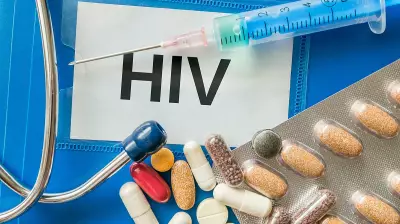
India is witnessing an alarming rise in serious fungal infections, with recent studies suggesting they may surpass tuberculosis in annual incidence. This growing health threat comes at a crucial moment when the Indian Council of Medical Research (ICMR) has decided to integrate its specialized fungal laboratories into a larger infectious diseases network, raising concerns among medical experts about the future of fungal research and diagnosis in the country.
The Integration: Expansion or Dilution?
The ICMR had established a dedicated fungal laboratory network called Mycology Network (MycoNet) approximately five years ago across eight public health facilities. These centers were specifically designed to map fungal infections, assess their impact, and ensure rapid diagnosis to save lives. Now, these specialized labs are being incorporated into the broader Infectious Diseases Research and Diagnostic Laboratory (IDRL) network.
Medical professionals express apprehension that this merger might relegate fungal research to a secondary position and impact the flow of funds and resources to these crucial facilities. Dr. Vinaykumar Hallur, additional professor in the Department of Microbiology at AIIMS Bhubaneswar, which hosts one of ICMR's mycology reference laboratories, emphasizes the importance of sustained support for fungal research infrastructure.
"Significant findings, made possible through ICMR support, demonstrate the critical importance of robust mycological surveillance and research infrastructure," Dr. Hallur stated. "While we welcome the establishment of mycology verticals within the IRDL network, we strongly urge continued expansion and sustained funding of the initiative itself to effectively address the escalating threat of fungal diseases."
India's Massive Fungal Disease Burden
The urgency of maintaining focused attention on fungal infections becomes clear when examining the staggering statistics. A study published in the Open Forum Infectious Diseases journal in December 2022 revealed that India has the largest burden of fungal diseases per capita globally.
The research estimated that over 57 million people (4.1% of India's population) are affected by serious fungal diseases. This represents a burden ten times higher than the annual incidence of tuberculosis in the country. The study authors also highlighted how diagnostic limitations across India have already hampered high-quality epidemiological research.
Top infectious diseases expert Dr. David W Denning, one of the study authors, explained that their research aimed to stimulate better surveillance and improve access to new generation fungal diagnostic tests. "Reference labs have a critical role in specialized testing. There is a need to develop easy and affordable antifungal susceptibility tests," Dr. Denning emphasized.
ICMR's Perspective: An Upgraded Approach
Despite concerns from the medical community, ICMR officials maintain that the integration represents an upgrade rather than a downgrade for fungal research. Dr. Nivedita Gupta, head of communicable diseases at ICMR, asserts that the move actually expands the mandate and scope of work for these facilities.
"It is important to strengthen infrastructure and capacity for testing viruses, bacteria, fungi and parasites on an equal footing and be prepared for any public health crisis," Dr. Gupta explained. "We have established 10 IRDLs in India in 2024 and are now in the process of establishing 15 more laboratories."
Dr. Gupta justified the integrated approach by noting its alignment with the One Health framework, which recognizes the interconnectedness of human, animal, and environmental health. She also highlighted the substantial funding allocated to each IRDL unit, with the five-year cost of equipment, consumables, and staff ranging between Rs. 10 and Rs. 16 crore.
Why Fungal Research Needs Exclusive Attention
Medical mycologists argue that fungal diseases present unique challenges that require specialized focus. Dr. Jayanthi Savio, Professor in the Department of Microbiology at St. John's Medical College and Hospital in Bengaluru, explains that the primary challenge in managing fungal infections lies in diagnosis.
"Though it begins with issues in obtaining ideal samples, the most critical gap is lack of technical expertise," Dr. Savio noted. "Conducting and interpreting both conventional culture and the newer non-culture-based tests, such as PCR and Next Gen sequencing, require expertise and experience."
The specialized mycology centers have already made significant contributions to understanding fungal diseases in India. Dr. Hallur's facility at AIIMS Bhubaneswar documented several important findings, including India's first case of azole-resistant madurella fahalii, the first global report of arthrinium rasika ravindrae keratitis, and the first Indian case of fonsecaea nubica chromoblastomycosis.
Diagnostic Deficiencies and Future Concerns
Experts worry that an integrated platform could further exacerbate existing gaps in fungal diagnosis and treatment. A recent study examining diagnostic capabilities of teaching microbiology laboratories across Odisha revealed alarming deficiencies: fewer than half conducted antifungal susceptibility testing and less than 15% performed cryptococcal antigen testing - a diagnostic assay classified as essential by the World Health Organization.
According to Dr. Hallur, these diagnostic limitations perpetuate under-recognition of fungal diseases, leading to chronic under-investment in mycological services. The current fungal diagnostic capabilities in lower-tier cities and districts require significant strengthening.
Dr. Savio proposes a practical solution: "It would be feasible only if these advanced mycology centers receive continual support. They can work in a hub and spoke model, identifying institutions within their states/zones for diagnostic capacity building through workshops and other educational programmes."
As India faces this growing fungal disease burden, the medical community remains watchful about how the integration of specialized fungal labs into a broader network will impact the country's ability to diagnose, treat, and research these increasingly common infections that affect millions of Indians annually.






